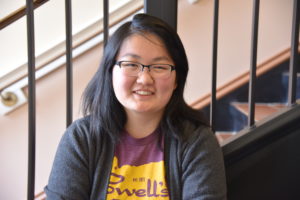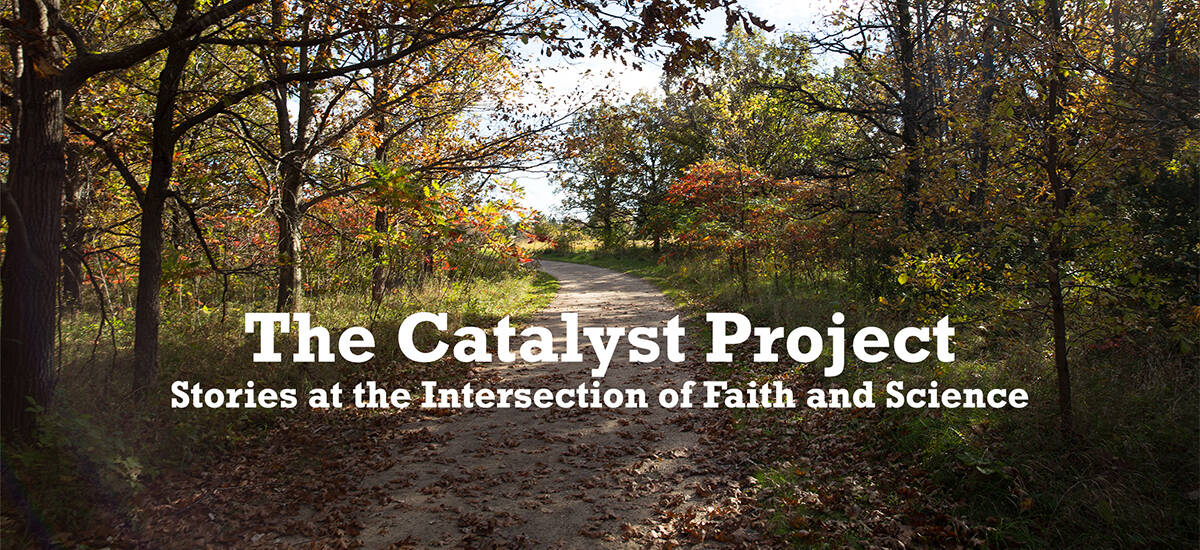
Chloe Shaw first became interested in science when she took an AP Biology class in high school. Her teacher guided her to a new understanding of vocation and the numerous paths one can take in science. Through this class, Chloe’s eyes were opened to statistical, Global Imaging System, and “large” biology work. “That’s more my end of the biology spectrum—ecology, conservation biology, that sort of thing,” she says. Her AP Biology teacher showed her how scientific work can be applied in real life. After graduating from Gustavus, Chloe hopes to work in the fields of biology and statistics and possibly in biogeography, which involves looking at species distribution in the future. As an individual, Chloe is a strong problem-solver and is effective at organizing and taking steps of action, which contributes to her success in the fields of leadership and biology. “I see connections between different organizations, and can help them team up with each other to form a larger impact,” she explained.
Chloe believes that her parents have immensely influenced her throughout her academic journey. As a first-generation college student, she feels that they’ve been supportive and helpful throughout the process. Additionally, Chloe appreciates the support and genuine care that Gustavus professors have for their students, saying that “Pamela Kittelson is helpful in alleviating tensions and reminding us that everything is going to work out”. Having these kinds of individuals surrounding her has led her to prosper in her academic learning environment. Additionally, one of Chloe’s core beliefs is the importance of recognizing the shared humanity of all people, and seeing injustice and supporting individuals who are being marginalized. She believes that “being kind to one another is important”.
Within her scientific discipline, Chloe believes that many people see science as the ultimate truth. “It is [seen as] unchanging. But it’s not necessarily always true. Science is about questioning, and being able to change understandings based on evidence,” she explained. Chloe believes that environmental stewardship is a strongly held belief amongst the environmental studies department. She also described the close relationship that faith and science shared in the past, saying that “People have used biology to look at the wonder of God’s creation”. Chloe also referenced the examples of Mendel, who was a monk, and different priests were also naturalists. She says that “to some extent, depending on who you are, science is a catalyst or method to understand the complexity of God’s creation.” Chloe is currently grappling with this idea, and continues to revisit the concepts of creation and science throughout her studies.
When it comes to common Christian conflicts with science, Chloe believes that “for a lot of people, the idea of evolution is very jarring.” She appreciates how professors at Gustavus, such as Jon Grinnell, have made sure to tell students that evolution and creation do not have to be mutually exclusive and leave it open to each individual to explore. Chloe says that “I don’t see the bible as completely literal, it’s more of an interpretation. Our Bibles were translated multiple times to English from different languages, and I think that some meaning has been twisted there.”
Chloe’s beliefs and interpretation of the Christian faith has evolved throughout her life. She says that “when I was younger, I was very involved in the church and lived in a household of Christians.” As she has pursued her vocation, her involvement and understanding of faith has changed, especially in coming to college. The academic demands of college have influenced her involvement at church. “It’s a sort of opportunity cost trade-off, with homework and studying. However, I’m trying to get more into it again”, she says.
Chloe doesn’t believe that her faith currently directly informs her study of science, but there are many areas of overlap between faith and science that she’d like to explore further. Within the worlds of science and religion, most depictions show them “only butting heads against each other,” she explained. “I think a lot of backlash against science comes from an interpretation of the bible as a fundamentally true text, which I don’t see. So I don’t experience this innate conflict between the two.” Chloe is interested and eager to continue exploring different interpretations of the Bible and the way that science and religion can build alliances and work together.
